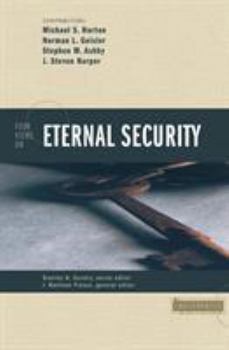Book Overview
Does the Bible support the concept of "once saved, always saved," or can a person lose his or her salvation?
Among the most hotly debated topics in the history of Christian theology has been the perseverance of the saints. How do the Scriptures portray the complex interplay between grace and free will? These and related questions are explored from different angles in this thought-provoking Counterpoints volume.
The contributors each state their case for one of four prominent views on eternal security:
Classical Calvinist - presented by Michael S. HortonModerate Calvinist - presented by Norman L. GeislerReformed Arminian - presented by Stephen M. AshbyWesleyan Arminian - presented by J. Steven HarperIn keeping with the forum approach of the Counterpoints series, each view is first presented by its proponent, then critiqued and defended. This fair and respectful approach allows you to weigh for yourself the strengths and weaknesses of the different doctrinal stances. By furnishing you with scholarly and thoughtful perspectives on the topic of eternal security, this book helps you sift through opposing views to arrive at your own informed conclusions.
Related Subjects
Christian Books & Bibles Religion Religion & Spirituality Religious Studies Theology




